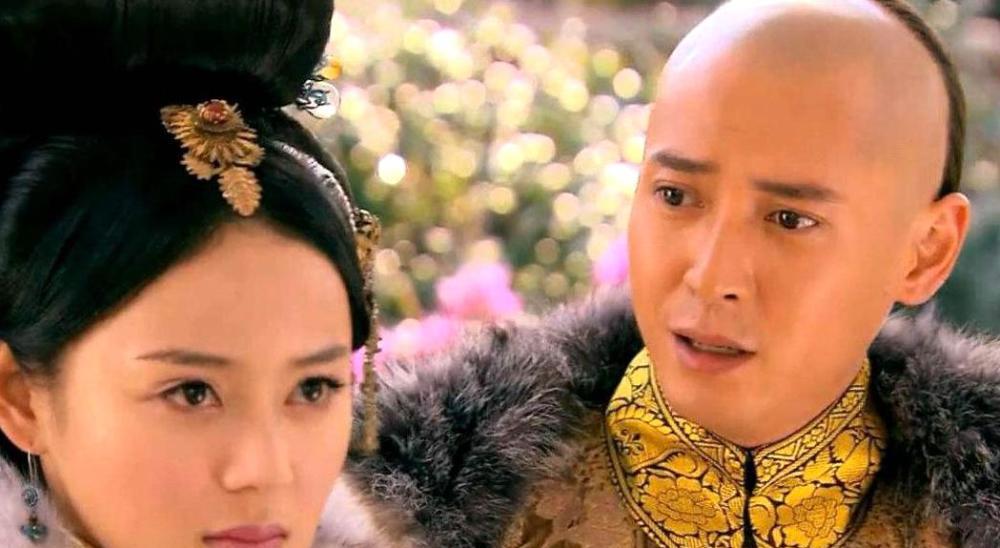Many people have argued before the credibility of Empress Xiaozhuang's "marriage to Dolgun". Of course, after the three generations of KangQian's "literal prison" and Qianlong's "Four Libraries of Complete Books", many historical materials have been destroyed and lost, and it is now difficult to confirm.
Speaking of Dorgon, his title changed from "Uncle Regent" at the beginning to "Uncle Regent", and finally fixed in "Emperor Father Regent", which is interesting. Whether it is out of the idea of filial piety or Shunzhi, this "imperial father" means "ah dai". Has there ever been an emperor in history who called other people "Grandpa"?

There are two examples. The Tang Dynasty Yizong managed the eunuch Tian Lingzi to be called "A Father", and the Han Dynasty Ling Emperor managed the eunuch Zhang Rang to be called "A Father". The two emperors were because the eunuchs grew up with themselves and had the grace of nurturing, and then expressed their intimacy. Because of this, it is also considered by posterity to be the "stain" of the Emperor.
What is Shunzhi's reason for calling Dolgun "Emperor Father"? And then posthumously awarded the title of "Qing Chengzong" after his death, just to assist the meritorious can not say, right?
Are there any precedents in history for the princes to be posthumously awarded the title of "Emperor"? There are two more cases. Sima Yan posthumously named Sima Shi the Prince of Jin "Emperor Jing"; The Jiajing Emperor Zhu Houxi posthumously named Zhu Youxi (yuán), the Prince of Xingxian, as "Emperor Xingxian". The reasons for the two of them to pursue the seal are very sufficient.
Sima Yan was the founder of the Western Jin Dynasty, who uniformly posthumously sealed his predecessors, posthumously sealed his grandfather, uncle and father, and the power of his father Sima Zhao was inherited from Sima Shi, the great uncle, and belonged to the same line of power. Zhu Houxi posthumously awarded the title of "Emperor Xingxian", that is because Zhu Youqi was the father of others. What was Shunzhi's reason for posthumously honoring Dorgon?
Look at 1650, what happened?
In January, Dorgon married his nephew Hauge;
In May, Dorgon married a Sister Flower of North Korea;
In November, Dorgon went out hunting;
In early December, Dorgon died in Luanping (Qara City), Hebei Province;
After Dorgon's death, Shunzhi was buried and posthumously awarded the title of "Chengzong".
Less than a month passed, and by 1651. In January, he was arrested and imprisoned as Prince Azig (Brother Dorgon). Two days after Azig's arrest, Shunzhi announced that he was officially in charge of the imperial government. In February, Shunzhi settled accounts with Dolgun Qiuhou, hunting down his pro-party, raiding his family and exterminating his clan, and stripping him of his honorific title.
In contrast, in 1648, Hauge died; in 1649, Dorgon died; in 1650, Dorgon died; all died in their prime, all died (especially Dorgon, who also married his daughter-in-law twice that year, and could not be sick to death).
As a result, there are two possibilities for Dorgon to be enthroned as "Chengzong":
First, Shunzhi "Taoguang yang obscurity", forced by the pressure of Dorgon's pro-party, first gave the honorific title; waited for the other side to relax its vigilance, and then suppressed it. The deaths of Hauge, Dordor, and Dorgon are unclear; Azig is captured; he is first enthroned as a "Chengzong" and then stripped away; all of them are the result of the imperial power struggle.
Second, if it is true that Xiaozhuang married, so many Ergun married his daughter-in-law twice in half a year, which undoubtedly made Xiaozhuang jealous. After Dorgon's death, it was only two months before someone shook out, something that made Hyojo angry: Dorgon died of excessive lust with his Korean daughter-in-law. So there is a "thick burial first, then settle the account" thing.
"Marrying Dorgon under Filial Piety" is an unsolved case in the Qing Dynasty. After Xiaozhuang's death, the coffin was not buried for decades. Qianlong later rehabilitated Dorgon, but only restored the title of "Prince rui" and did not mention "Emperor Chengzong".